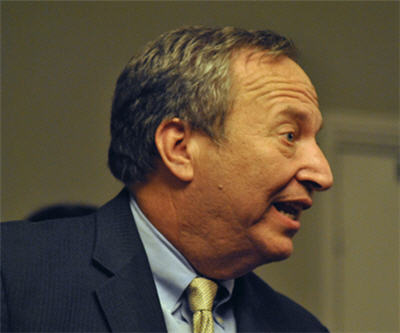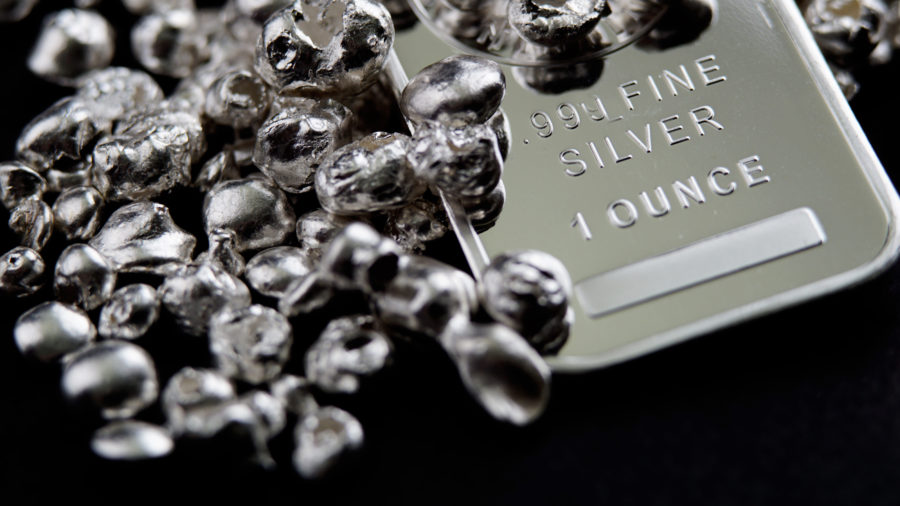Summers drops out of Fed race. Gold jumps 2%

News that former Treasury Secretary Lawrence Summers has withdrawn his name for consideration as the next chairman of the Federal Reserve, boosted the gold price in early Asian trade.
Summers was US President Obama’s chief economic adviser in the aftermath of the sub-prime crisis and Treasury Secretary under President Clinton from 1999-2001.
Bernanke’s term expires at the end of January 2014, and Summers was competing with Janet Yellen, currently the vice chairman of the Fed, as well as former vice chairman, Donald Kohn, for the post.
The Washington Post reports President Obama “had been strongly leaning toward picking Summers, who helped him navigate the depths of the financial crisis and recession at the beginning of his term, and had assurances from Democratic Senate leadership leaders that they would work to get him confirmed, according to people familiar with the matter.
“But amid an intensifying uproar of liberal Democrats and left-wing groups opposed to his nomination, Summers decided to withdraw his name on Sunday, telephoning the president to tell him his decision.”
Yellen is a former President of the Federal Reserve of San Francisco and a long time Fed insider who has worked closely with Bernanke and his predecessor, Alan Greenspan.
Yellen, now the clear frontrunner, is considered the main architect of the US central bank’s quantitative easing program, which kicked off in December of 2008.
Summers on the other hand has been a critic of quantitative easing and is said to prefer for fiscal rather than monetary policy to steer the economy.
Under the third, open-ended round of QE which was first announced in September last year, the Fed buys up Treasurys and mortgage bonds to the tune of $85 billion a month.
The Fed’s balance sheet crossed the $3 trillion mark early into 2013 and is set to top $4 trillion by the end of the year if the current pace is kept up.
QE, which essentially floods markets with cheap money, increases gold’s allure as a hedge against inflation amid currency depreciation.
The sell-off on precious metals markets this year has been mostly as a result of fears that ultra-loose monetary policy may come to an end sooner rather than later.
Gold was last trading at $1,336 an ounce, adding more than $25 or nearly 2% in Asian trade to the Summers news.
The gold price has increased nearly 60% since QE1 when the ruling price was $837 an ounce.
The Fed meeting ends Wednesday and consensus is that the it will announce a relatively modest $10 billion reduction is asset purchases.
More News
{{ commodity.name }}
{{ post.title }}
{{ post.date }}




4 Comments
metalmouth
The “print more money” is ahead for Fed consideration… that is not really news is it? Of course with the Federal Debt, the FED must print more QE.
They have always printed more money! Since 1973 the paper dollar is less than 10% of its value. The only question is: “How much faster will the FED print more money”?
Chris Henry
http://kingworldnews.com/kingworldnews/KWN_DailyWeb/Entries/2013/9/14_More_Fallout_-_Crushing_JPM_Gold_%26_Silver_Whistleblower_News.html – I think this is a much more likely explanation for the price jump, we shall find out soon enough.
figjam
Print more money or shut down the Government…Its a lose lose situation. Checkmate. Its all good for Gold.
Neam Saturat
Hi guys!
Check this out: http://www.youtube.com/watch?v=S6ZReGz_hMI (yesterday)
Happening in Romania regarding Rosia Montana.